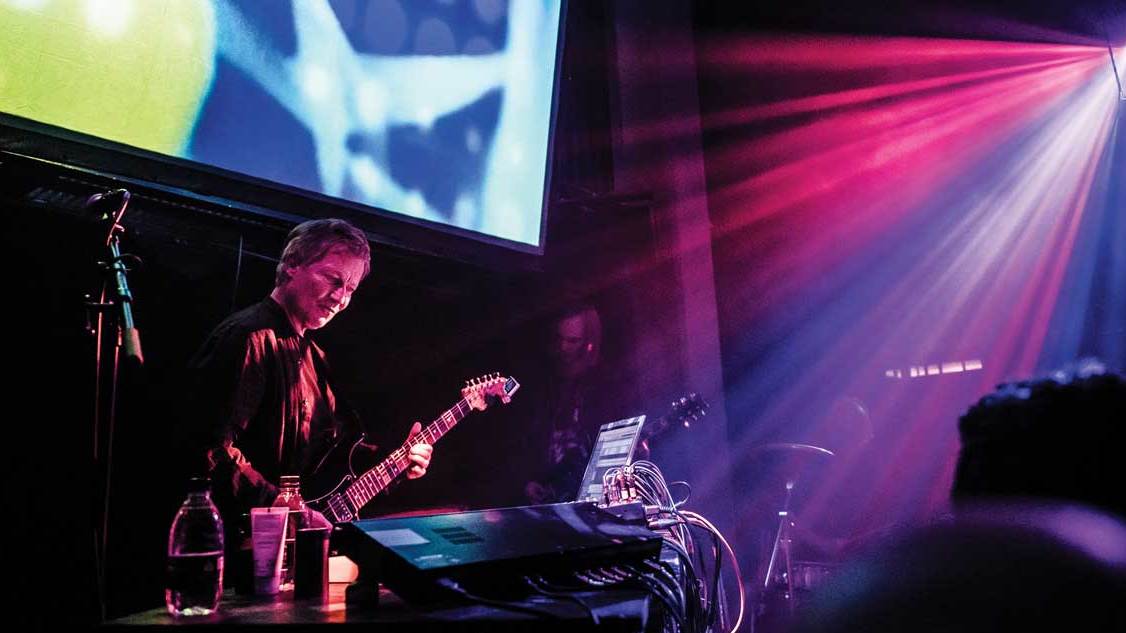As Michael Rother acknowledges with a smile, he isn’t one for talking much onstage. He probably doesn’t want to break the spell cast by the music, which is a wise and astute call. However, he takes a moment tonight to remember fallen comrades: Can drummer Jaki Liebezeit, who provided the motorik beat for Rother’s late‑70s albums and for whom Rother recently played a tribute jam in Cologne; Harmonia colleague Dieter Moebius; and Klaus Dinger, with whom Rother split from an early Kraftwerk in 1971 to form Neu! with great results, altering the course of music.
There’s respectful applause from the Krautrock-enamoured audience, and a voice shouts, “And Holger!” referring to Can’s co-founder Holger Czukay. “Yes, Holger,” defers Rother. “Although actually I never worked with him, but… great stuff.”
This very German mix of accuracy, precision and dry humour serves him well. That exchange aside, the Hamburg-born 67-year-old focuses on what he does best: finding the glory in driving, repetitive grooves that aspire to a transcendent and trance-like state of Zen, while refusing to allow your feet to keep still or your brain to switch off.
His cohorts are guitarist Franz Bargmann, a younger man who nonetheless looks like the most 70s-in-Germany musician ever, and Hans Lampe, veteran of the peerless Neu ’75! album. They provide the solid-as-a-post-rock foundations over which Rother lays his laptop-based sound bed and, most thrillingly, his guitar.
His playing on most tracks begins as decorative, establishing a hint of melody or an effective hook. Then, as the music climbs up through the gears, he gets more possessed, unleashing a serrated, abrasive sound that still retains control and structure. Energy roars as it might from a showier guitarist, yet it emanates from an exquisite balance between raw power and restraint. There’s no widdly-widdly flash here, just plenty of diamond‑sharp edge.
Within these superficially similar but crucially different grooves, any self-respecting music fan will hear glimmers of their favourite artists who recognised Rother’s genius and borrowed and built on elements: Bowie’s Berlin trilogy, obviously, but also scents of early Ultravox, Simple Minds, Radiohead and the 21st-century’s leading lights of electronica.
In front of a subtle film backdrop showing misty autobahns, the trio play a set lasting around 90 minutes, visiting the highlights reel of Neu!, Harmonia and Rother’s solo catalogue. It works best as a whole, developing momentum as the trio pick up a head of steam. Of course, the biggest cheers and most untethered head-nodding (from an all-ages crowd who are concentrating very, very hard) arrive with the Neu! landmarks, which lock in like a sniper fingering a trigger. Krautrock’s greatest living guru still turns less into more and makes sparks fly.

